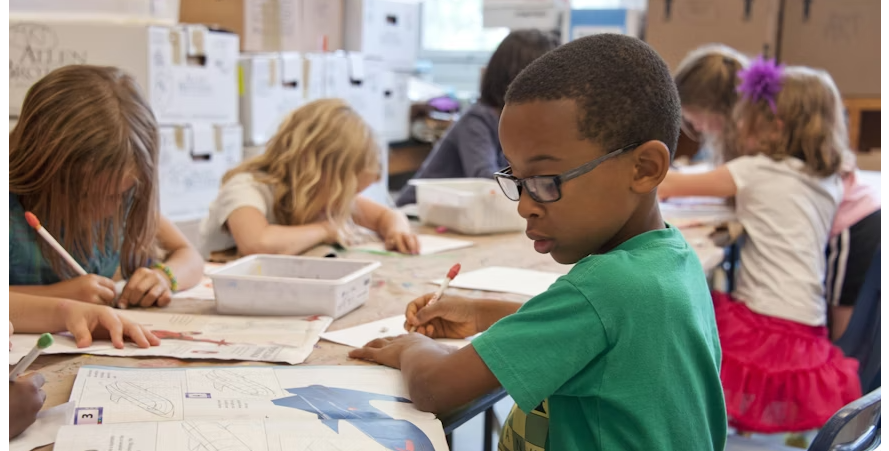Home School Versus Public – Making the Right Choice
Choosing between Home School Versus Public School can feel overwhelming for any parent. This decision shapes your child’s academic journey, social development, and future opportunities.

Home School vs Public School
When you’re weighing the Home School Versus Public School debate, you’re not just picking an education method—you’re choosing a lifestyle that affects your entire family.
Recent success stories make this choice even more compelling. Homeschooled students have dominated national spelling bees, earned prestigious university scholarships, and achieved remarkable accomplishments across various fields. These victories naturally lead parents to wonder: Which educational path truly serves my child best?
The answer isn’t simple, but this guide will help you navigate the key factors. Next, we’ll explore how learning environments shape your child’s educational experience.
Learning Environments
Where Your Child Thrives Best
Home schooling creates a calm, secure learning environment where children can focus without distractions. Your child won’t worry about peer pressure, fashion trends, or fitting into social cliques. This peaceful setting allows them to work at their own pace and in their preferred learning style.
Students can dive deep into subjects that fascinate them without rushing to keep up with classroom schedules. They also avoid the stress of comparing themselves to classmates or dealing with classroom disruptions. This environment particularly benefits children who learn differently or need extra time to master concepts.
The Dynamic Social Classroom Experience
Public schools offer a bustling, interactive environment that mirrors real-world social situations. Students learn to navigate relationships, handle conflicts, and collaborate with diverse groups of people. These daily interactions develop essential life skills that extend far beyond the confines of textbooks.

Children develop resilience by facing challenges alongside their peers. They learn to communicate with different personality types, work in teams, and adapt to various teaching styles. This social component prepares them for the workplace dynamics and community involvement they will encounter later in life.
Now, let’s examine how curriculum choices differ between these two approaches.
Curriculum Control
Customization Versus Standardization
Home schooling gives parents complete control over what their children learn and how they learn it. You can choose a curriculum that matches your family’s values, your child’s interests, and their unique learning style. This flexibility allows you to spend more time on challenging subjects while moving quickly through areas your child grasps easily.
Parents can integrate real-world experiences into lessons, take field trips when it benefits learning, and adjust the pace based ontheir child’s needs. You can also incorporate religious or spiritual teachings if that aligns with your family’s beliefs. This personalized approach often leads to a deeper understanding of the subject matter.
Comprehensive Exposure Through Public Education
Public schools follow state-mandated standards that ensure students receive a broad, well-rounded education. Teachers expose children to diverse subjects, perspectives, and ideas they might not encounter at home. This standardized approach ensures all students meet minimum educational requirements.
Students experience various teaching methods from different instructors, which helps them adapt to different learning styles. They also participate in group projects, presentations, and collaborative learning that builds communication skills. The structured curriculum prepares students for standardized tests and college entrance requirements.

Let’s now examine the practical benefits each option offers to families.
Advantages of Public School Education
Key Benefits
Financial Accessibility: Public schools offer free education, funded by community taxes, making quality education accessible to all families regardless of their income level.
Professional Teaching Staff: Certified teachers bring specialized training and expertise to each subject area, ensuring students receive quality instruction across all disciplines.
Diverse Social Opportunities: Students interact with children from various backgrounds, cultures, and perspectives, preparing them for our multicultural society.
Extensive Extracurricular Programs: Schools offer a range of sports teams, music programs, drama clubs, and other activities that foster talents beyond academics.
Structured Schedule: Consistent daily routines help students develop time management skills and prepare for workplace expectations.
Advantages of Home School Education
Flexible Scheduling: Families can create schedules that work around their unique needs, travel plans, and learning rhythms.
Stronger Family Bonds: Spending more time together naturally strengthens parent-child relationships and family connections.
Individualized Pace: Children can master complex concepts thoroughly before moving forward or accelerate through material they understand quickly.
Enhanced Safety: Learning at home eliminates concerns about school violence, bullying, and negative peer influences.
Value-Based Education: Parents can ensure their children’s education aligns with family beliefs and moral standards.
Research shows interesting performance differences that influence your decision.
Academic Performance: What the Data Shows

These statistics suggest that homeschooled students often achieve strong academic outcomes, although many factors contribute to their educational success. The following section addresses common concerns parents have about both options.
Frequently Asked Questions
What causes circadian rhythm disruptions in students?
Early school start times can disrupt natural sleep patterns, especially for teenagers whose biological clocks naturally shift later. Homeschooled students can align their learning schedule with their natural energy patterns, improving focus and retention.
What’s the main difference between homeschool and public school?
The primary difference lies in educational control and environment. Home schooling offers personalized, family-controlled education at home, while public schools provide standardized, professionally-delivered education in a social classroom setting.
How do homeschool vs public school statistics compare?
Homeschooled students typically score higher on standardized tests and show strong college performance. However, public school students benefit from diverse social experiences and professional teaching expertise. Both approaches can produce successful outcomes when matched to individual student needs.
What are the similarities between homeschool and public school?
Both educational approaches aim to prepare students for future success, can be customized to student interests, provide opportunities for extracurricular activities, and require parental involvement. Students from both backgrounds can excel academically and socially when their educational environment matches their needs.
How does homeschooling compare to private school?
While both offer more control than public schools, homeschooling provides maximum flexibility and family involvement. Private schools offer professional instruction and structured social environments while maintaining smaller class sizes and often specialized philosophies.
Making Your Decision: Next Steps Forward
Choosing between homeschool and public school requires an honest assessment of your family’s needs, resources, and goals. Consider your child’s learning style, social needs, and personality traits. Evaluate your family’s time availability, financial situation, and educational philosophy to determine the best approach.
Remember that this decision isn’t permanent. Many families successfully transition between educational approaches as circumstances change or children grow. The most crucial factor is selecting the option that best supports your child’s academic, social, and emotional growth.
Your child’s success depends more on your involvement and support than on the educational setting itself. Whichever path you choose, your dedication to their growth and learning will make the difference in their academic journey.

References
Pros and Cons of Starting School Early in the Morning – EducationalWave. https://www.educationalwave.com/pros-and-cons-of-starting-school-early-in-the-morning/
The Blue Genes Team
mybluegenes.com
rachele@mybluegenes.com




